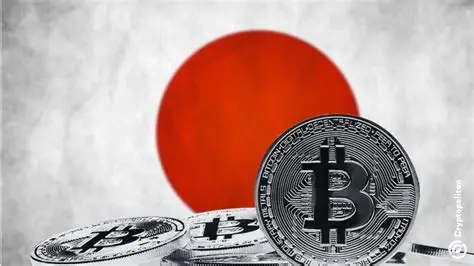In a bold move, the Japan FSA Proposes Stricter Crypto Rules has proposed stricter crypto regulations to bring the digital asset industry in line with traditional finance.
As global regulators grapple with how to control the fast-evolving crypto market, Japan’s FSA wants to strengthen rules around exchange operations, token issuance, and investor protection — marking one of the biggest updates to Japan’s crypto framework in years.
The initiative titled “Japan FSA proposes stricter crypto” is not about restricting innovation — it’s about creating a safer and more transparent digital finance environment.
Why Japan Is Tightening Crypto Rules
Japan FSA Proposes Stricter Crypto Rules was one of the first nations to legalize crypto trading and regulate exchanges after the Mt. Gox and Coincheck incidents.
However, as DeFi, NFTs, and tokenized securities grew rapidly, loopholes appeared in the system.
The FSA believes that without stronger oversight, crypto markets could become vulnerable to:
-
Insider trading
-
Market manipulation
-
Unregulated offshore exchanges
-
False promotional activities
Thus, Japan FSA proposes stricter crypto laws to ensure the ecosystem’s credibility and protect investors from future risks.
Key Changes in the FSA Proposal
H3: 1. Crypto to Be Classified Under the Financial Instruments and Exchange Act (FIEA)
The FSA plans to reclassify cryptocurrencies as financial instruments, not just “digital assets.”
This shift will bring crypto under the same rules that apply to stocks, bonds, and derivatives, requiring detailed disclosure and investor protection measures.
H3: 2. Stricter Registration for Exchanges
All crypto exchanges will need to meet enhanced licensing standards, including:
-
Transparent financial audits
-
Strong anti-money laundering (AML) systems
-
Real-time transaction reporting
-
Secure custody of user assets
Foreign exchanges serving Japanese citizens without a local license could face bans or penalties.
H3: 3. Rules for Token Issuers and DeFi Projects
Projects launching tokens will have to file comprehensive whitepapers showing tokenomics, use cases, and associated risks.
DeFi platforms offering yield or staking products will also need official registration and disclosure of smart contract details.
H3: 4. Stronger Stablecoin Oversight
Stablecoins, such as USDT or JPY-backed coins, will face more scrutiny.
Issuers must maintain full collateral transparency and undergo regular third-party audits to ensure the stability of their tokens.
Investor Protection Takes Center Stage
The heart of this reform lies in protecting ordinary investors.
By tightening market surveillance and insider trading rules, the FSA wants to eliminate price manipulation and scams.
It also plans to require crypto advertising transparency, ensuring that promotional campaigns disclose actual risks — similar to traditional stock markets.
Timeline and Implementation
The “Japan FSA proposes stricter crypto” plan is currently under consultation.
If approved by Parliament in 2026, the rules could take effect by mid-2027, giving exchanges and issuers a transition period to comply.
During this period, the FSA will release detailed guidance documents to help businesses adjust smoothly.
Global Impact: Japan Leads the Way in Responsible Regulation
Japan’s initiative could serve as a blueprint for other nations.
By tightening crypto laws while still supporting innovation, Japan sets an example of balanced regulation — one that protects users without stifling progress.
Other Asian countries like South Korea, Singapore, and Taiwan are closely watching Japan’s model as they consider similar reforms.
Challenges Ahead
While the proposal is a positive step, it raises several concerns:
-
Smaller startups may struggle with compliance costs.
-
Too much regulation could slow innovation.
-
Ambiguity over which tokens qualify as securities may confuse businesses.
Still, experts agree that strong regulation is vital for long-term market maturity and investor confidence.
The Future of Japan’s Crypto Market
If successfully implemented, Japan could become the most trusted and secure crypto market in Asia.
With clearer laws, regulated DeFi platforms, and transparent exchanges, both retail and institutional investors could return to the Japanese crypto scene with renewed confidence.
The FSA’s stricter approach shows that the country is not against crypto — it simply wants to ensure that innovation happens safely, transparently, and sustainably.
Conclusion
The phrase “Japan FSA proposes stricter crypto” marks a turning point in the nation’s digital asset journey.
By focusing on investor protection, regulatory clarity, and compliance, Japan aims to transform its crypto market into a model of global integrity.

